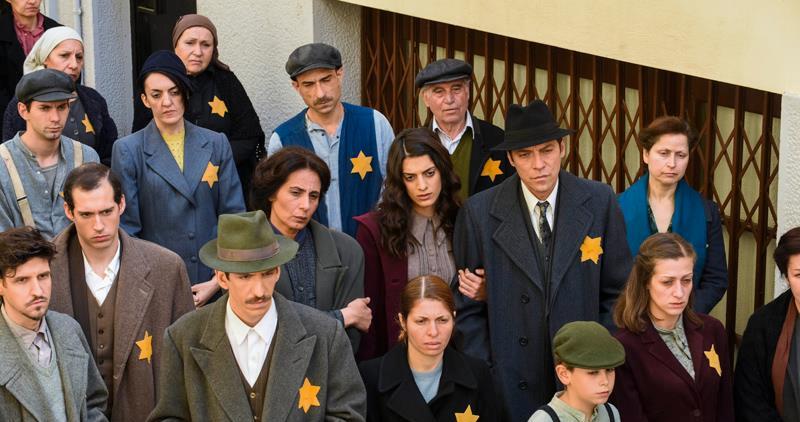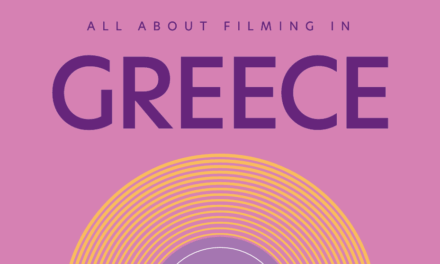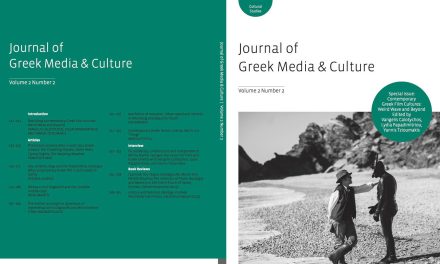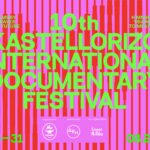The San Francisco Greek Film Festival (SFGFF) celebrates its 15th year with a rich film selection. The Festival annually showcases the work of Greek and Cypriot filmmakers from around the world, aiming to inspire, engage, and entertain its diverse audience. The SFGFF accepts film submissions in all categories. The audience votes for their favorites in the feature-length film and short film category for The Astron Award.
The Festival program includes 24 feature-length films and shorts by Greek and Cypriot filmmakers from around the world. Among the Festival’s feature films are “Rosemarie” by Adonis Florides, “Polyxeni” by Dora Masclavanou and “Cloudy Sunday” by Manoussos Manoussakis who will be this year’s artist-in-residence and will also facilitate with Q&As and provide context for the films throughout the week. The festival program also includes Tasos Boulmetis’ docudrama “1968” and short fiction film “Mum, I’m back” by Dimitris Katsimiris. All filmshave English subtitles.
Paramount CEO Jim Gianopulos
Festival events
To celebrate its 15th year, the festival will host Closing and Opening Nights at the Premier Theater at Lucasfilm and Dolby Cinema at the Dolby Laboratories headquarters respectively.
The Festival’s events include the Opening night at Lucasfilm’s Premier Theater at the Letterman Digital Arts Center in the Presidio on Friday, Oct. 12. Greek film master Pantelis Voulgaris will present his latest film, “The Last Note”, about the execution of Greek resistance fighters during the Nazi occupation of WWII. The festival will present Voulgaris with an award to honor his legacy in Greek cinema. Writer Ioanna Karystiani and producer Yiannis Iakovidis are also expected to attend the screening.
On closing night on Saturday, Oct. 20 at Dolby Cinema, the festival will present the first-ever Spyros P. Skouras Lifetime Achievement Award to Paramount CEO Jim Gianopulos. The award was created and sponsored by Tom Skouras, festival Advisory Board member and nephew of the late Skouras, to honor outstanding film industry professionals of Greek descent. The reception will be followed by screening of Dora Masclavanou’s “Polyxeni”.
Katerina Mavroudi – Steck: “We don’t want the crisis to dominate the conversation about Greece”
On the occasion of the 15th Festival Edition, Greek News Agenda interviewed* SFGFF co – director Katerina Mavroudi-Steck on its history, programming and selection criteria. Born and raised on the island of Crete in Greece, Katerina Mavroudi-Steck came to the United States to complete her studies in Economics and has made it her home for the last 36 years. She worked for several years in the Silicon Valley for a high tech company but for the last ten years she has worked for the San Francisco Greek Film Festival and other events which celebrate and promote the arts, history, and culture of Greece. Mavroudi underlined that the Festival was established as an alternative way to celebrate Greek Culture. Regarding the crisis effect on the image of Greece, she stressed that it’s up to the films to give people a deeper and more nuanced picture of Greek society and, although the crisis has definitely left its marks, “we don’t want the crisis to dominate the conversation about Greece”.
“Polyxeni” (2018), dir. Dora Masclavanou
What was the rationale of establishing the San Francisco Greek Film Festival?
The San Francisco Greek Film Festival was established to highlight the latest independent films from the Greek World. In America, Greek communities often celebrate our culture through food and folk dancing. It’s great that we do this, but we also felt it was important to create a space to celebrate Greek cinema, which is a special art form that deserves a platform. At the time that we established the festival in 2004, we were one of the few festivals in America celebrating Greek film. Every year, we receive more and more film submissions and we screen an increasing number of films at each festival. We are celebrating our 15th Anniversary this year, making it the longest-running festival of Greek and Cypriot cinema in the country.
What do you think about contemporary Greek cinema?
We strive to feature a variety of film styles and formats: shorts, features, documentaries, dramas, comedies, and everything in between. Attending one of our festivals keeps you on the pulse of what’s happening in Greece (and the diaspora) in that moment in time.
“Rosemarie” (2017), dir. Adonis Florides
What are the criteria for your selection and programming?
Films have to be connected with Greece or Cyprus in some way. They could be Greek or Cypriot productions, the filmmakers or star actors could be of Greek or Cypriot descent, or films could be about these countries.
What is the impact of the Festival in the community?
Since the festival was founded in 2004, it has screened 268 movies, hosted 36 Greek and Cypriot filmmakers and other special guests from the film industry, and has inspired, engaged, and entertained more than 9,000 attendees. We love bringing the San Francisco and Greek film communities together every year and look forward to growing and expanding our impact.
“Mum, I’m back” (2017), dir. Dimitris Katsimiris
Do you help filmmakers come into contact with representatives of the film industry?
During the week of our festival, the filmmakers get to network with the other visiting guests from the industry and we try to arrange for visits with the San Francisco Film Society or Lucas Studios.
In what ways is the festival connected with the Modern Greek Studies Foundation and the Center for Modern Greek Studies and the Nikos Kazantzakis Chair at San Francisco State University?
The San Francisco Greek Film Festival is a program of the Modern Greek Studies Foundation and proceeds benefit the educational initiatives and cultural presentations of the Foundation. It’s a nonprofit organization with an active board of trustees and the festival is the organization’s signature annual event.

“Cloudy Sunday” (2016), dir. Manoussos Manoussakis
How has the crisis influenced the way Americans think of Greece and what is the influence of Greek cinema on their perceptions, if any?
Americans love Greece — this hasn’t wavered too much despite the economic crisis. American media outlets haven’t been covering the crisis lately, so it’s up to our films to give people a deeper and more nuanced picture of what’s happening today and all the ways it affects Greek society.
The economic crisis undoubtedly comes up as a topic in our film selections. This year’s short “The Ticket” («ΤοΕισιτήριο») is a good example. But Greek filmmakers have a lot more to say, and we don’t want the crisis to dominate the conversation about Greece.
* Interview by Florentia Kiortsi
Read also in our series of interviews about Greek Cinema Filming Greece: Manoussos Manoussakis: “The Fight Against Nazism is Always Contemporary”, Tassos Boulmetis: Strangely Enough, the Crisis Promotes Greek Cinema, Dora Masklavanou on giving voice to the outcasts, Dimitris Katsimiris takes a walk on the dark side













